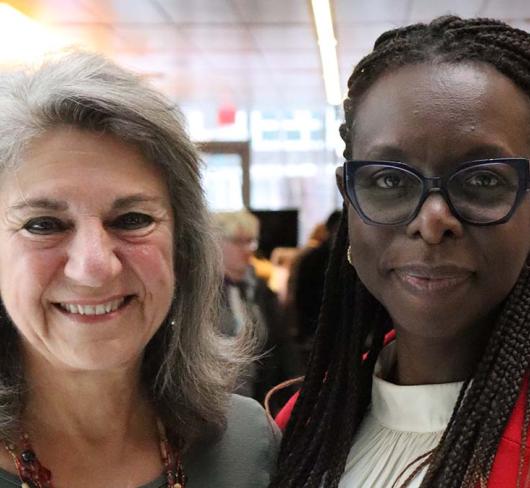A Flawed Process for Teacher Bargaining ( From the President)
On February 12, ETFO came to a difficult decision: we accepted a framework agreement for bargaining proposed by the provincial government.
Ultimately, the ETFO executive concluded that the government’s proposal was the best we could achieve for our members in this very difficult time, as the Ontario economy continues to deteriorate. We accepted the deal despite the very flawed process that preceded it.
Last spring, we voluntarily and in good faith agreed to take part in discussions with the Ontario Public School Boards’ Association (OPSBA) that could have led to a provincial agreement. Ministry officials were at the table. We had the minister’s assurance that there would be no artificially imposed deadline, no strips to our collective agreements, and no attempt to overturn arbitration decisions.
These assurances were to be broken in the months that followed. In late May, ETFO was unilaterally presented with a document with our name on it. The document, other than the name of the parties, was the same agreement that OECTA and their trustee association had signed. It did not reflect in any meaningful way the priorities of ETFO, contained strips to our existing agreements, and dealt with issues that had never been discussed in detail during any of the preceding meetings. On the first day of school both the Premier and the Minister of Education publicly declared that November 30 was being imposed as the deadline for reaching a provincial discussion table ( PDT) agreement and threatened smaller wage increases for federations that did not meet the deadline.
At end of November, the government approached us to resume talks with the OPSBA. The November 30 deadline was extended to December 5.
ETFO worked hard and creatively within the finite resources that the government was prepared to invest. We crafted a proposal that addressed, to the best of our ability, the working conditions priorities of our members, the need to protect the livelihood of members facing job losses due to declining enrolment, and the need to respect the current economic climate that members are facing in the communities in which they live and work. Our proposal would have created 1,500 additional elementary teaching positions across the province to address the teachers’ workload issues. It would have meant no ETFO member would have received less in-pocket salary over the four years of the agreement, but that at the end of four years our grid rates would have been less in relation to those of other teachers.
We were prepared to invest in our students, our communities, and our province.
The government did not dispute that our proposal was workable. However, it was rejected by OPSBA. OPSBA, in return, demanded strips to our collective agreements, including language that would have given principals control over teachers’ preparation time. In essence, OPSBA held hostage to their management rights demands the salary increases the government was prepared to fund. Your employers did not demand these strips from secondary teachers’ collective agreements. In the days that followed December 5, OPSBA misrepresented the costs of our proposal.
ETFO returned to its focus on local bargaining and told local boards that we expected to see full proposals tabled by February 13. I visited almost every local as we began to organize for a difficult round of bargaining that would likely have included the necessity to take strike votes and job action. The minister, meanwhile, threatened back-to-work legislation.
On February 10, Minister Wynne chose to present us with a take-it-or-leave-it proposal with a two-day deadline. Within hours of handing us the document, she made its contents public, an action that I believe created a poisonous environment. OPSBA was quick to sign, of course; in all of the proposals that were exchanged, the trustees, superintendents, principals, and directors who made up the OPSBA team would experience no personal loss.
This final government proposal contained none of the offensive strips of the OPSBA’s December proposal. However, it reduced teacher pay increases by 1 percent in each of the first two years, giving our members less than their colleagues in other federations. The government’s offer matched the wage increases that we had proposed in December, but did not use the $130 million freed up to create 1,500 jobs in elementary schools. In not doing so, the government is not just punishing teachers for not signing early, it is also punishing elementary students.
Funding provided per elementary student is hundreds of dollars a year less than that provided for secondary students. The government admits the gap exists but refuses to close it. On February 12 I publicly called on Premier McGuinty to finally commit his government to eliminating this gap. Without such a commitment, elementary students’ learning conditions are inferior and elementary teachers’ working conditions are poorer. We remain committed to changing that situation … to closing the gap!

